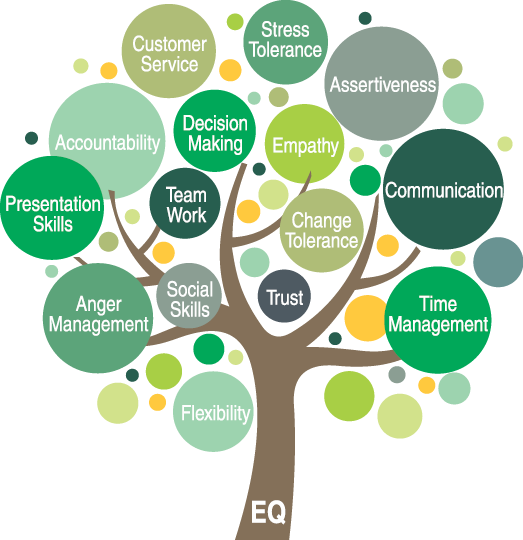Be more self-aware
Being aware of your emotions and emotional responses to those around you can greatly improve your emotional intelligence. Knowing when you’re feeling anxious or angry can help you process and communicate those feelings in a way that promotes healthy results. To improve your awareness, consider tracking any time you feel a strong emotion and taking notes about what caused your feeling.
Recognize how others feel
Emotional intelligence may start with self-reflection, but it’s also important to gauge how others perceive your behavior and communication. Knowing how to adjust your own message based on how you’re received is an important part of being emotionally intelligent. If you’re unsure, you can always ask others how they feel to show that you prioritize their reactions.
Practice active listening
People communicate via both verbal and nonverbal communication, so it’s important to listen and watch for potentially positive and negative reactions. Taking the time to listen to others also indicates a level of respect that can form the foundation for healthy relationships. To show that you’re actively listening, try asking questions, nodding along or repeating back important points to show that you’ve understood them.
Communicate clearly
Strong communication skills are essential for emotional intelligence. Knowing what to say or write and when to deliver information is crucial for building strong relationships. For example, as a manager in a work environment, communicating expectations and goals is necessary to keep everyone on the same page. Try to be as communicative as possible and create multiple channels for others to communicate their feelings with you.
Stay positive
Emotionally intelligent people understand the power of a positive word, an encouraging email and a kind gesture. When you’re able to also stay positive in a stressful situation, you can help others around you remain calm. This attitude can also encourage further problem-solving and teamwork. While negative emotions can be normal, consider developing strategies to minimize their effects and look for solutions.
Empathize
Considering how others might be feeling is an important quality of emotional intelligence. It means you can empathize with feelings that you may not be feeling yourself and respond in a way that’s respectful and comforting to others. Try to imagine yourself in others’ positions so that you can consider how you might feel if in their situation.
Be open-minded
Emotionally intelligent people are often easy to approach because they’re good listeners and able to consider and understand other perspectives. They’re also open to learning new things and embracing new ideas. Even if you’re unsure of a new idea or concept, try to consider what it may look like to implement it into daily work.
Listen to feedback
Be the kind of person who can hear feedback, whether it’s positive feedback on a recent presentation or more critical recommendations on how you should delegate tasks more efficiently. Being open to feedback means you can take responsibility for your actions and are willing to improve how you communicate with others. While some feedback may be challenging to receive, try to think of it as an opportunity to learn and grow professionally.
Stay calm under pressure
Approach stressful situations with a calm and positive attitude. Tensions can easily escalate, especially when people are working under deadlines, so keeping steady and focusing on finding a solution can help everyone meet their goals. Try to develop strategies like taking a deep breath or asking for help when in a stressful situation to help you stay calm and thoughtful.
(Adapted from: https://www.indeed.com/career-advice/career-development/how-to-improve-…)
